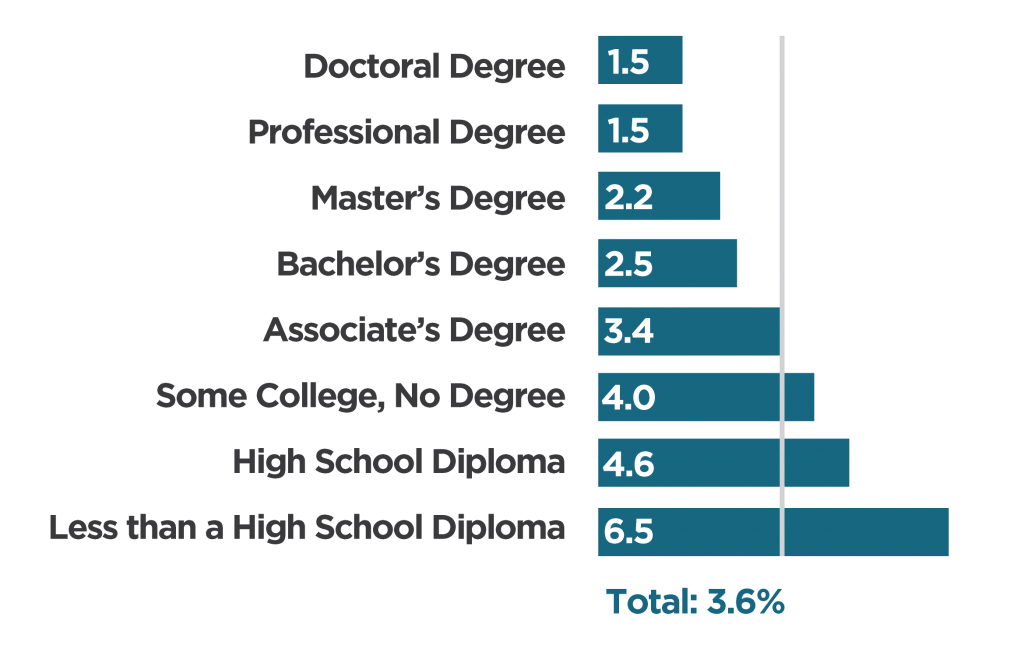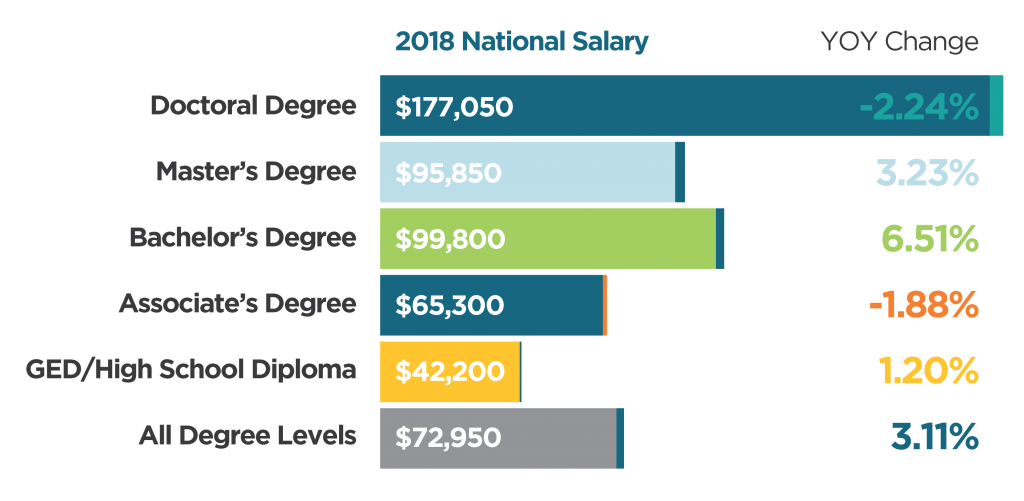What is the Value of a Degree?
As we talk about how the education space has recently changed, the value of a degree continues to be under attack both in terms of cost and its importance given the current hiring desperation of employers. Unemployment rates continue to drop and are currently at record lows, yet we are still seeing many people in the job market that are underemployed or unable to secure a job due to a lack of skills. Many of these unfulfilled jobs are falling in the construction, food services, health care, retail and durable goods manufacturing industries. Employers continue to struggle to find qualified workers and are becoming desperate to hire employees to serve their current customer base. So much so, that some employers are offering tuition reimbursement and guaranteed jobs upon graduation through programs.
Unemployment Rate Changes by Educational Attainment

Median National Salary Outcomes by Degree Level

We are also continuing to see an increase in online programs offered and enrollment rates are not keeping up. From 2013 to 2017 we saw a 30 percent increase in online programs and only a 20 percent growth rate of online students (Source: Ipeds). While there has been a pretty steady decline in the number of enrollments for for-profit education institutions, what we have been surprised by is that it has not translated into gains in students on the not-for-profit side. A lot of these dislocated students have somewhat disappeared from the enrollment marketplace instead of shifting and moving, and we have seen a new cohort appear on the not-for-profit side.
All of this turmoil leads to the realization that education has evolved into a life-long journey and where your education begins is not the same place it ends. Even if some are lucky enough to keep one particular job, inevitably they will need some sort of training to keep them competitive and at the top of their game throughout their career.
Over 45 percent of employed adults report they have pursued extra training to maintain or improve their job skills in the past year and the majority of American workers say they will need continuous training to keep up with changes in the workplace (Source: The state of American Jobs’ Pew Research Center). Data also shows that not only is job security higher for those with a degree, so is their expected income.
We are seeing a new environment emerge, one which is driving innovation in competency-based education, alternative tuition models and closer alignment generally between employers and education institutions. Long story short, having a college degree still matters and it is important for institutions to not only be aware of the marginal value of that degree for the learner but that the value aligns with the cost of the degree program and also its relative career opportunities.